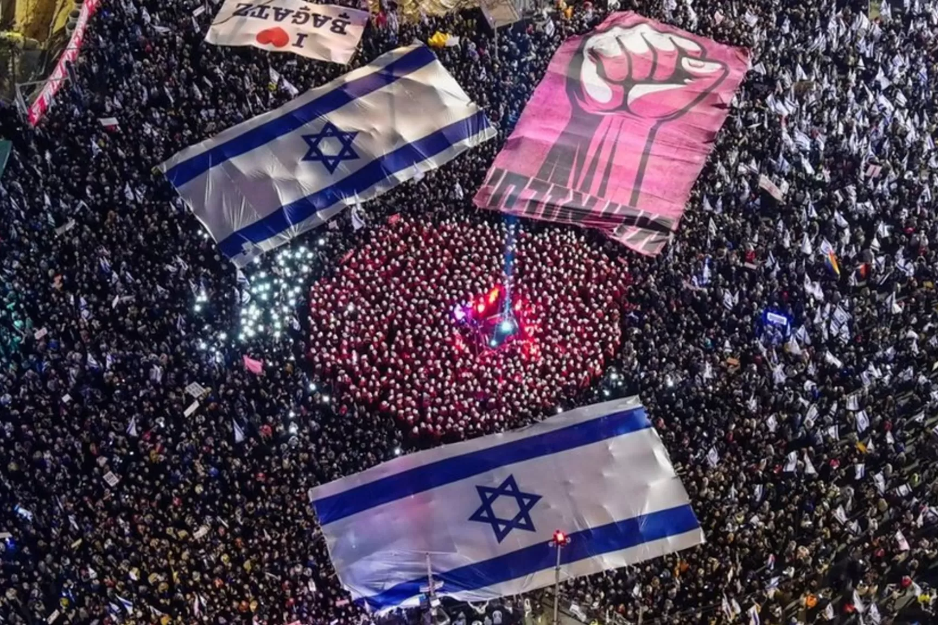
As protests in Israel continue to escalate in their scale and innovative use of tactics, our Israel Coordinator Eran Nissan wrote about why he thinks protest is still an important tool in bringing about positive change in society.
The protests are primarily against the Israeli government's efforts to introduce very controversial judicial reform but also against wider issues of corruption and the accountability of politicians, and for a smaller number of protestors this also include Israel's ongoing occupation and control of Palestinians & Palestinian territory.
Below Eran's brief answer to the question 'what is the point of protest?' you will find 5 critical thinking questions that unpack it and ask you to think about how this might work in practice. Let us know what you think on social media with your own ideas about the importance or challenge of protests by using the hashtag #SNSWhyProtest
Eran:
"It is our future that we are fighting for. Our commitment as activists is to equality, peace, and justice. Our goal is to build a co-resistance to systems of oppression. Such systems are embodied in the recently elected Israeli government. I found it to be very homogeneous - ultra conservative, religious, racist, nationalistic, anti-liberal, anti-women, anti-LGBTQ. They have waged war against Arabs, against unions, against journalists, against the judicial branch, against civil society, against everyone who did not vote for them, and honestly, against many who did.
However, they will find us united and determined. Our camp will be the complete opposite of theirs - diverse, inclusive, colourful, progressive, Arab-Jewish. In the end, we will win. We will build the future we deserve, so all humans between the river and the sea will enjoy security, prosperity and opportunity.”
---
1. In what ways can a diverse, inclusive, and colourful protest movement help build momentum for change and inspire hope for a better future in a conflict as entrenched and polarised as the one between Israel and Palestine?
2. How can protests serve as a platform for amplifying the voices of marginalised communities, such as Arab/Palestinian and LGBTQ+ people, who have historically been excluded from political power and decision-making processes?
3. To what extent can protests help mobilise international solidarity and pressure governments and institutions to take concrete action towards resolving the conflict and addressing human rights violations?
4. What risks and challenges do protesters face in a conflict situation, and how can they be mitigated to ensure the safety and well-being of all participants?
[Photo credit: Reuters via the BBC]